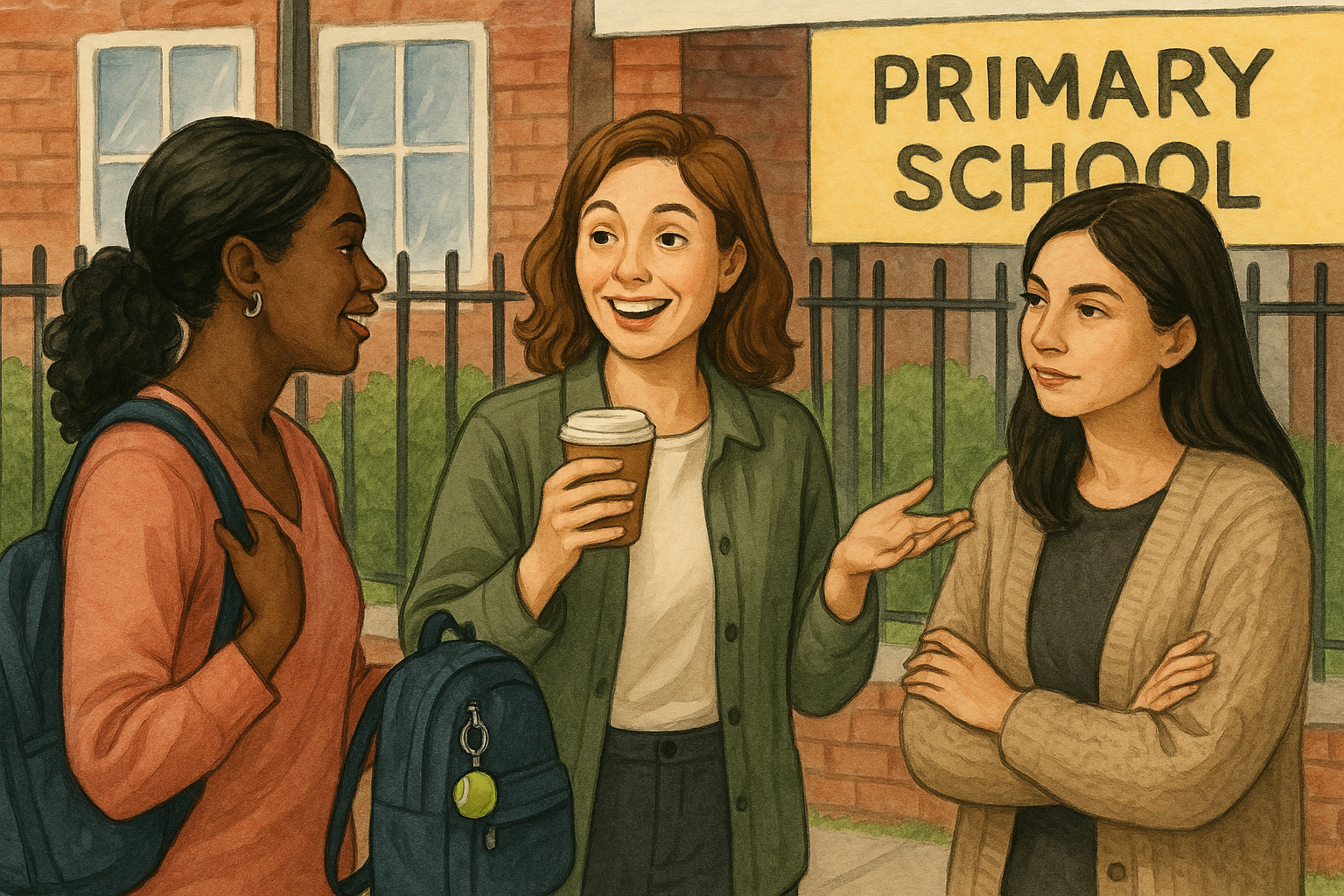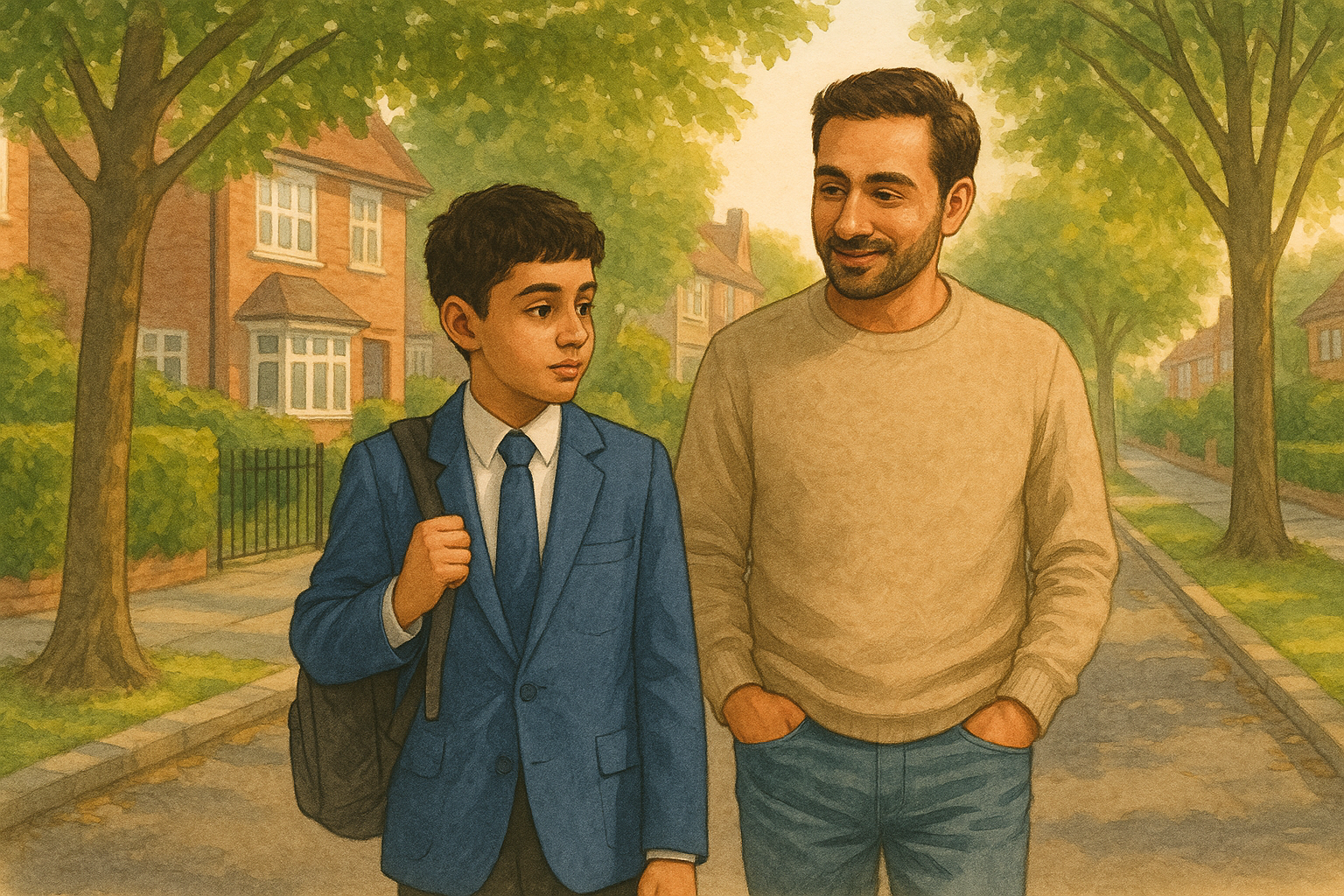
Grammar Schools vs Private Schools
Grammar Schools or Private Schools. You’re at the school gates, and another parent casually mentions they’re “looking at grammar schools” for September. Suddenly, that familiar panic sets in, should you be doing the same? What about private schools? Are you somehow failing your child by not having a master plan already mapped out?
Let’s be honest: choosing your child’s secondary school can feel like navigating a maze blindfolded. I’ve been there myself as a mum, and I’ve guided hundreds of families through this exact dilemma over my 20 years in education. So grab a latte, and let’s have that honest conversation about grammar schools vs private schools that you’ve been putting off.

The Real Talk: What We’re Actually Comparing
Before we dive into the nitty-gritty, let’s get our facts straight. I’ve met parents who think grammar schools are just “posh state schools” and others who believe private schools automatically guarantee Oxbridge places. The reality is more nuanced.
Grammar schools are selective state schools that your child enters by passing the 11-plus exam. They’re free, academically rigorous, and have strong university progression rates. There are about 164 of them across England, though availability varies dramatically by location.
Private schools (or independent schools) are fee-paying institutions that set their own admission criteria and curriculum. They typically offer smaller class sizes, extensive facilities, and significant pastoral care – but come with substantial financial commitments.
The Financial Reality: Understanding the True Cost
Let’s tackle the obvious difference first: the financial commitment varies enormously between these options.
Grammar Schools: The “Free” Option
Grammar schools are funded by the government, meaning no tuition fees. However, there are often indirect costs to consider:
- House prices in grammar school catchments are typically inflated
- Many families invest in 11-plus tutoring (£50+ per hour)
- Some relocate specifically to access grammar schools
- Transport costs if the school isn’t local
Private Schools: The Investment Reality
Private school fees range from £15,000 to £60,000 annually, and recent VAT additions mean an extra 20% on top. For a £20,000 annual fee, that’s an additional £4,000 per year – £28,000 extra over seven years.
However, many families find value in what they receive:
- Smaller class sizes and individual attention
- Extensive extracurricular programs
- Superior facilities and resources
- Strong alumni networks
- Flexibility in approach and curriculum
The key question isn’t whether private schools are “worth it”, it’s whether they’re worth it for your specific child and family circumstances.
Academic Performance: Separating Fact from Fiction
Grammar School Academic Environment
Grammar schools consistently achieve excellent results, often ranking among top-performing schools nationally. The academic environment is intensive, with high expectations and motivated peer groups. Students are surrounded by others who prioritise learning, creating a culture of academic achievement.
The competitive atmosphere motivates many students to excel, but it’s not suitable for everyone. Some children thrive on this pressure; others find it overwhelming.
Private School Academic Advantages
Private schools offer several distinct academic benefits:
- Lower pupil-teacher ratios allow for individualised attention
- Flexibility to adapt teaching methods to different learning styles
- Resources to support students with specific needs
- Often excellent university guidance and connections
Recent changes in university admissions have introduced “contextual admissions,” where universities consider the school context when making offers. This has levelled the playing field somewhat, but private schools still maintain strong university placement records through quality teaching and support.
The Geography Factor: Location Matters
Grammar School Availability
This is where grammar schools get complicated, and where I see families make some tough decisions.
Grammar schools aren’t everywhere. If you live in areas like Birmingham or parts of London, you might not have any nearby. Meanwhile, if you’re in Kent or Buckinghamshire, you’re spoiled for choice. It’s genuinely unfair, and I’ve watched families agonise over whether to relocate.
But here’s what really gets parents: even if your child passes the 11-plus with flying colours, distance often determines whether they get a place. I’ve worked with children who scored in the top 10% but didn’t get into their local grammar school because they lived 0.3 miles too far away.
The property prices around good grammar schools are often inflated too, there’s your “free” education creating an indirect cost. I know families who’ve spent £50,000 more on a house just to be in the right catchment area. Still cheaper than private school fees, but it’s not as straightforward as it first appears.
Private School Accessibility
Private schools don’t have geographical constraints in the same way, though the best schools maintain waiting lists. This flexibility can be valuable for families in areas without strong state options or those who move frequently.
Social Environment: What Daily Life Really Looks Like

Grammar School Social Dynamics
Grammar schools offer genuine diversity, children from various backgrounds united by academic ability rather than family income. This creates an environment where merit matters most, and children form friendships across economic boundaries.
The academic focus means conversations often centre around learning, competitions, and intellectual pursuits. For academically motivated children, this is energising. For others, it might feel intense or pressured.
Private School Social Experience
Private schools typically offer more intimate communities with closer pupil-teacher relationships. The smaller environments often provide better pastoral care and support for individual needs.
However, there’s typically less economic diversity, which can create different social pressures. The emphasis on facilities and opportunities means children might expect certain lifestyle standards.
Facilities and Opportunities: Quality vs Resources
Grammar School Resourcefulness
Grammar schools maximise their resources brilliantly. While they might not have Olympic pools, they often achieve remarkable results through passionate teachers and creative programs. Many have nationally recognised departments operating with limited budgets but unlimited enthusiasm.
The focus remains firmly on academic achievement, with extracurriculars often run by dedicated staff in their own time.
Private School Investment
Private schools genuinely offer superior facilities – from science laboratories to sports complexes to arts centres. These aren’t just impressive; they enhance educational opportunities in meaningful ways.
The investment in resources extends to staffing, with schools able to employ specialist teachers and support staff that state schools might struggle to afford.
Making the Right Choice: What Actually Matters
After guiding hundreds of families through this decision, here’s what I’ve learned makes the difference:
Know Your Child’s Learning Style
- Thrives on competition: Grammar schools might suit perfectly
- Needs individual attention: Private schools often excel here
- Motivated by peer pressure: Grammar school environment could be ideal
- Requires flexibility and support: Private schools typically offer more adaptability
Assess Your Family’s Priorities
- Academic achievement above all: Both can deliver, but through different approaches
- Well-rounded development: Private schools often have broader programs
- Value for money: Grammar schools offer exceptional academic return
- Long-term financial planning: Private schools require significant commitment
Consider Practical Factors
- Geographic options: What’s actually available in your area?
- Transport and logistics: How will school choice affect daily life?
- Sibling considerations: Can you provide similar opportunities for all children?
University Admissions: The Changing Landscape

The university admissions landscape is evolving. While private schools maintain strong track records, contextual admissions mean universities increasingly consider school background when making offers. Both grammar and private schools can provide excellent preparation for university, but through different approaches.
Grammar schools prepare students for competitive academic environments, while private schools often provide more comprehensive university guidance and preparation.
A Decision-Making Framework
When parents ask for guidance, I recommend considering:
The Academic Fit:
- How does your child respond to pressure and competition?
- Do they need significant individual attention or work well independently?
- Are they naturally motivated or require external encouragement?
The Financial Reality:
- Can you sustain private school fees for seven years?
- What other opportunities could grammar school savings provide?
- How would financial stress affect your family?
The Environment Match:
- Does your child thrive in diverse or more homogeneous settings?
- How important are extensive facilities vs focused academics?
- What kind of pastoral care does your child need?
The Truth About Success
Here’s what I need parents to understand: your child’s future success isn’t determined by school type. I’ve taught children who’ve achieved incredible things from all educational backgrounds.
The most important factors for success are:
- Quality of teaching (available in both settings)
- How well the environment suits your child’s personality
- The support and values provided at home
- Your child’s own motivation and character
Looking Forward: Your Next Steps
If considering grammar schools:
- Research local options and admission processes
- Begin 11-plus preparation thoughtfully (not obsessively)
- Visit schools to assess the environment
- Discuss expectations honestly with your child
If exploring private schools:
- Calculate true long-term costs including recent changes
- Visit multiple schools to find the right cultural fit
- Understand each school’s particular strengths
- Consider scholarship and bursary opportunities
The Bottom Line
There’s no universally “correct” choice between grammar and private schools. The right choice aligns with your child’s needs, learning style, and your family’s values and circumstances.
I’ve watched children flourish in both environments, and I’ve seen others struggle in “excellent” schools that simply weren’t right for them. Success happens when you find the environment where your child feels appropriately challenged, genuinely supported, and excited about learning.
Don’t let anyone make you feel guilty about your choice, whether it’s driven by financial realities, geographical limitations, or intuition about what’s right for your family. You know your child better than any league table or prospectus.
Every child deserves to feel confident in their learning environment. Whether that’s in a competitive grammar school or a nurturing private school, the goal remains the same: helping your child develop into a happy, capable, and well-rounded individual.
The most successful outcomes I’ve witnessed come from families who choose thoughtfully, support wholeheartedly, and remain flexible as their children grow and change.
At Academic Success, I’ve supported families through both pathways, and the most important thing I’ve learned is this: motivated, well-supported children can thrive anywhere. The key is making sure they feel valued, challenged, and understood wherever they are.
“If you’re wondering how to prepare for 11+ exams, don’t miss our ultimate guide: 11 Plus Exams: A Parent’s Guide
What specific questions do you have about this choice? Every family’s situation is unique, and sometimes the best guidance comes from discussing your particular circumstances.
Reena Damani is the founder of Academic Success, with over 20 years of experience helping children aged 3-11 build strong foundations and reach their potential. She has guided hundreds of families through school choice decisions and continues to support families across the UK in their educational journeys.



